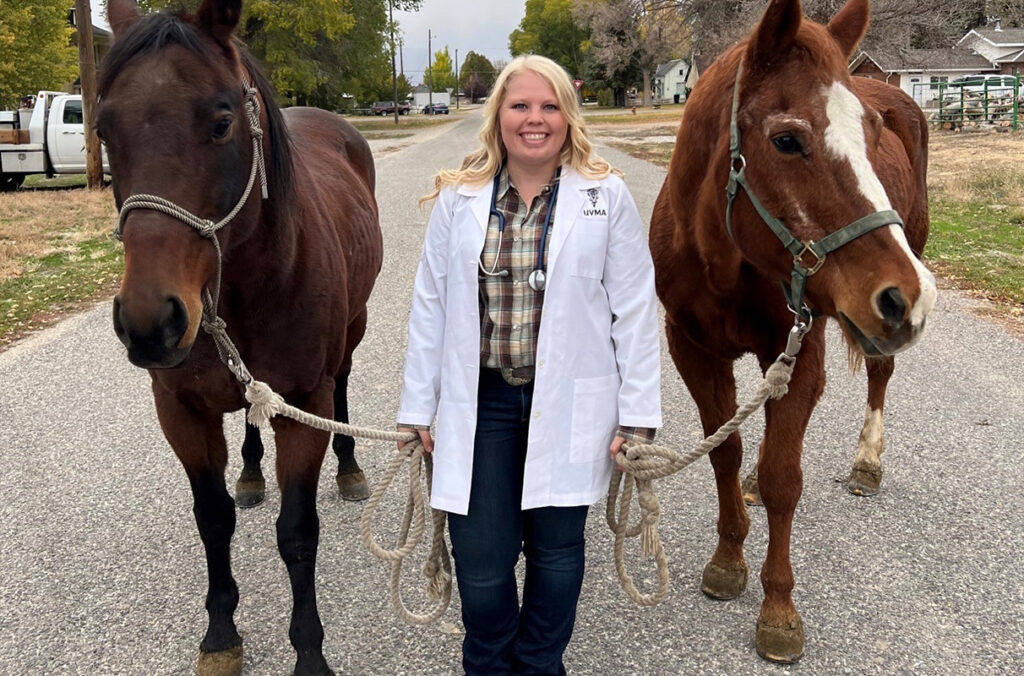A 9-year-old Kaitlin Beckstead and her father did their best to clean the laceration to their young lamb’s abdomen and suture the wound closed, using all they had on hand – a large sewing needle and fishing line.
They had tried and failed to reach the closest veterinarian, roughly half an hour away from their home in Manti, Utah. But it was a Saturday, and no help was coming.
As the Becksteads experienced, a lack of veterinary care is an issue throughout much of the nation. Washington State University College of Veterinary Medicine Dean Dori Borjesson said that dearth is especially evident in many rural areas, particularly when it comes to large and agricultural animal practitioners.
“There is a tremendous need for veterinary professionals right now and rural communities are really feeling that shortage,” Borjesson said.
There’s no single cause of the shortage in rural areas. Often there aren’t positions available in those areas, and when there are, they frequently pay less than openings in urban areas, which can be a dealbreaker for recent graduates obligated to repay their student loans.
Borjesson said WSU is working to ensure its graduates have an affordable education that maintains a focus on mixed-animal work, preparing them for a wide range of careers. The college is also exploring how to better engage in pipeline programs to increase applications for students interested in large animal medicine and to ensure its students have access to scholarships and are aware of loan repayment options, like the United States Department of Agriculture’s Veterinary Loan Repayment Program. The program will pay up to $25,000 a year toward the educational loans of eligible veterinarians who agree to serve in a designated veterinarian shortage situation for three years.
Years after her experience with her lamb, Beckstead is preparing to graduate from WSU with a veterinary degree this spring. She has already accepted a position near her family’s home at the Gunnison Valley Animal Clinic in Gunnison, Utah, the same clinic that has cared for her family’s pets for years. The clinic, which offers care for both small and large animals, is located in one of Utah’s six designated veterinary shortage situations. Beckstead said she is applying for assistance through the USDA’s loan repayment program.
“The experience I had with the lamb was when I realized that I wanted to become a veterinarian, not only because I had a love for animals but to help them and their owners,” Beckstead said. “It also made me realize that I wanted to work in a practice in a rural area to help provide much-needed veterinary care.”
Beckstead came to WSU as part of a cooperative agreement between the College of Veterinary Medicine and Utah State University School of Veterinary Medicine. The program admits up to 20 Utah residents annually, who spend their first two years in Utah, before completing their studies in Pullman earning a DVM degree from WSU.
“Not only did it let me have in-state tuition for all four years, but it also helped me to be able to stay closer to family,” Beckstead said.
While she and her husband, Jared, have enjoyed their time in Pullman, Beckstead is excited to return to Utah, where she can begin her new career and be near to her family and her three horses.
“I have a special love for horses – I can’t imagine life without them.” she said, “so I wouldn’t mind if I get to provide care for a few extra horses at the clinic.”






